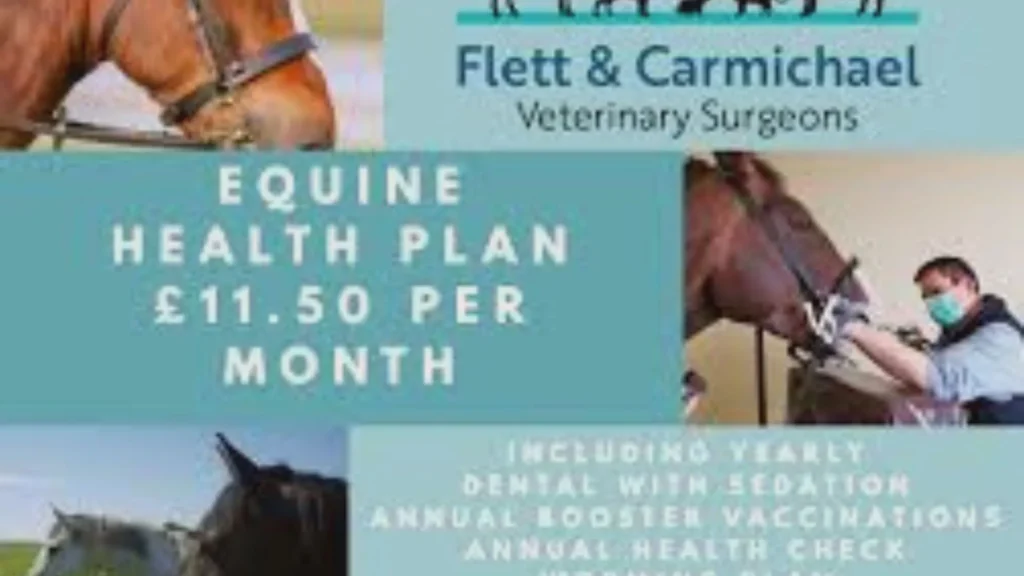Equine insurance plans are specialized insurance products designed to protect horse owners against financial losses related to their horses. This article explores the nuances of equine insurance, including its definition, types of coverage options, benefits, factors influencing costs, considerations for horse owners, and the overall importance of insuring horses.
What is Equine Insurance?
Equine insurance provides financial protection to horse owners for losses or damages related to their horses. It covers a range of risks such as mortality, medical expenses, theft, liability, and loss of use due to accidents or illnesses affecting horses. Equine insurance is essential for safeguarding valuable investments in horses and ensuring peace of mind for owners.
Types of Coverage
Equine insurance typically includes coverage for the following aspects:
- Mortality Coverage: Compensation for the death of a horse due to accidents, illnesses, natural causes, or theft.
- Major Medical Coverage: Insurance for veterinary expenses incurred for treating illnesses, injuries, surgeries, and other medical conditions affecting horses.
- Loss of Use Coverage: Compensation for loss of income or value resulting from a horse’s inability to perform its intended use or activities due to injury or illness.
- Liability Coverage: Protection against legal claims and lawsuits arising from injuries or property damage caused by horses to third parties.
- Theft and Colic Coverage: Insurance for theft of horses and treatment costs for colic, a common and potentially life-threatening digestive disorder in horses.
Types of Equine Insurance Plans
Full Mortality Coverage
Full mortality coverage provides comprehensive insurance against the death of a horse due to covered perils, including accidents, illnesses, natural causes, and theft. It offers financial compensation based on the insured value of the horse.
Surgical and Medical Coverage
Surgical and medical coverage reimburses veterinary expenses incurred for treating illnesses, injuries, surgeries, and medical conditions affecting horses. It provides essential financial support for comprehensive veterinary care.
Liability Insurance
Liability insurance protects horse owners against legal liabilities arising from injuries or property damage caused by horses to third parties. It covers legal defense costs and settlement payments associated with liability claims.
Loss of Use Insurance
Loss of use insurance compensates horse owners for loss of income or value resulting from a horse’s inability to perform its intended use or activities due to injury, illness, or permanent disability.
Factors Influencing Equine Insurance Costs
Horse Value and Use
The value of the horse and its intended use significantly impact insurance premiums. High-value horses or those used for competitive sports, breeding, or commercial purposes may require higher coverage limits, resulting in higher premiums.
Age and Health of the Horse
The age and health condition of the horse influence insurance premiums. Younger, healthier horses with no pre-existing medical conditions generally qualify for lower insurance premiums compared to older horses or those with health issues.
Coverage Limits and Deductibles
Higher coverage limits and lower deductibles typically result in higher insurance premiums. Horse owners can adjust coverage levels and deductibles based on their financial capabilities and risk management strategies.
Location and Stable Conditions
Insurance premiums can vary based on geographic location and stable conditions, including climate, environmental risks, theft rates, and quality of stable facilities. Stable management practices and security measures can impact insurance costs.
Choosing the Right Equine Insurance Plan
Assessing Insurance Needs
Evaluate the specific risks faced by your horses, such as health vulnerabilities, accident risks, liability exposures, and value considerations. Choose equine insurance plans that provide comprehensive coverage tailored to your horse’s needs and your financial objectives.

Comparing Insurance Providers
Research and compare multiple equine insurance providers to understand their policy options, coverage limits, deductibles, premiums, claims handling processes, and customer service reputation. Consider factors such as insurer reliability and specialization in equine insurance.
Reviewing Policy Terms
Carefully review the terms and conditions of equine insurance policies, including coverage exclusions, limitations, deductibles, liability limits, and any applicable endorsements. Understand the scope of coverage provided and any specific conditions or requirements that may apply.
Benefits of Equine Insurance Plans
Financial Protection
Equine insurance provides essential financial protection to horse owners by compensating for losses or damages related to mortality, medical expenses, theft, liability claims, and loss of use. It helps mitigate the financial impact of unforeseen events and ensures continuity of care for horses.
Peace of Mind
Knowing that horses are covered by insurance provides peace of mind to horse owners. It allows them to make informed decisions regarding horse health care, training, competition participation, and investments in their equestrian activities.
Risk Management
Insurance encourages proactive risk management strategies by providing financial support for veterinary care, liability protection, and loss mitigation measures. It promotes responsible horse ownership and supports long-term health and well-being for horses.
Considerations for Horse Owners
Veterinary Care
Maintain regular veterinary care and preventive health measures to promote horse health and well-being. Routine vaccinations, dental care, nutrition management, and appropriate stable conditions contribute to overall horse welfare and support insurance coverage.
Safety and Security
Implement safety protocols and security measures to protect horses from accidents, injuries, theft, and environmental hazards. Secure stable facilities, fencing, lighting, and monitoring systems to minimize risks and enhance horse safety.
Documentation and Records
Maintain accurate records of horse ownership, health records, purchase receipts, veterinary invoices, and insurance policies to facilitate claims processing. Detailed documentation supports the accuracy of insurance claims and ensures timely reimbursement for covered expenses.
Conclusion
Equine insurance plans are essential tools for protecting the financial interests of horse owners and ensuring the health, safety, and well-being of horses. By understanding the types of coverage available, factors influencing costs, considerations for horse owners, and the benefits of insurance, horse owners can make informed decisions to safeguard their investments and provide comprehensive care for their horses. While equine insurance requires an upfront investment, it offers invaluable benefits that contribute to responsible horse ownership, risk management, and long-term sustainability in the equestrian industry.
